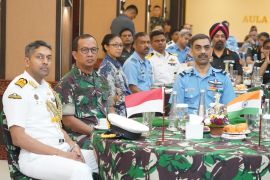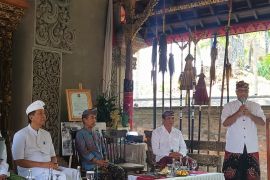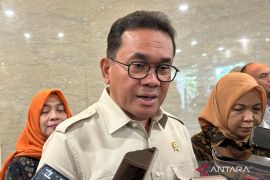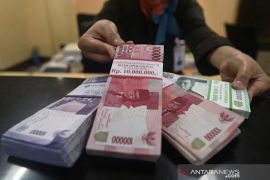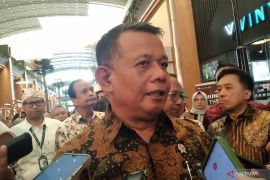Jakarta (Antara Bali) - The offshore scheme design for the Masela block will confirm the presence and clout of Indonesia in the border region with Australia, a military analyst stated.
"The Masela gas blocks offshore scheme will increase vessel traffic in the area," military analyst Connie Rahakundini Bakrie noted here on Monday.
The executive director of the Institute for Defense and Security Studies stated that the offshore scheme will affirm the existence of Indonesia in the exclusive economic zone.
Therefore, Indonesia should develop Masela quickly as Australia will strengthen its border region by building several floating liquefied natural gas (LNG) projects.
With regard to the aspect of a holistic approach, which includes humans, living space, welfare, sustainability, prosperity, and environment, the offshore scheme is better than the onshore proposal.
President Joko Widodo (Jokowi) has committed to transforming Indonesia into a global maritime axis.
Bakrie has criticized certain parties who cited the floating scheme to be vulnerable to surveillance and security of the country.
Instead, she affirmed that the floating scheme will encourage the Navy to improve its integrated fleet weapon system (SSAT).
Through the integrated system, the capabilities of warships, aircraft, marines, and bases will be improved to serve as an umbrella for the Navy.
As a result, it will streamline the pattern of security operations to uphold national sovereignty and territorial integrity.
"The eastern part of Indonesia will have a Naval Base, which will be in synergy with the Air Force Base," she pointed out.
She urged the government to secure the Masela area from the possibilities of a proxy war.
"There is a possibility of a proxy war being launched by Australia and its allies," Connie remarked.
The paradigm of Indonesia as the worlds maritime axis will strengthen the Navy and Air Force.
"Remember, the distance between Saumlaki and Darwin is only 300 kilometers," she remarked.
Earlier, an expert in geotechnical engineering had advised against building an onshore LNG plant to process gas from the Masela block, Maluku.
The area around the Masela block in the Arafura Sea is vulnerable to quakes or tsunami disasters, Kriyo Sambodho from the marine technology faculty of the Surabaya Institute of Technology (ITS) stated.
"With that risk, I would not recommend the development of the Masela block through the onshore scheme," Kriyo affirmed.
He said according to the US Geological Survey (USGS), the area around Masela block is frequently hit by strong quakes.
Data from the USGS revealed that during the period between 1900 and 2013, earthquakes had occurred 2,248 times around Masela, with magnitude ranging between 5 and 9 on the Richter scale and at a depth of 300 kilometers.
Minor quakes, with the epicenter located at a depth of up to 60 kilometers, hit that area 1,474 times.
During the 1900-2015 period, quakes, with magnitude of over 7 on the Richter scale, rocked that area nine times.
"Those data reveal intensive seismic activities around the Masela Block, therefore, it should be taken into consideration while deciding on the exploitation system for the development of the gas block, Kriyo stated.
The Masela block, operated by Japan Inpex Corp., is believed to hold one of the largest gas reserves in the world.
Kriyo said based on the geo hazard aspect, he would not recommend the onshore processing of gas that would necessitate the use of a long pipeline to channel the gas to the processing facility.
Potential quakes could damage the pipe system, he noted, adding that buried pipes could be lifted and broken.
"A 600-kilometer-long pipeline would be required to deliver the gas to Aru Island or 160 kilometers to Saumlaki, and that the possibility of being hit and damaged by quakes is high," he added. (WDY)
Masela Offshore Scheme Confirms Indonesian Clout in Border Region: Analyst
Selasa, 15 Maret 2016 7:30 WIB


